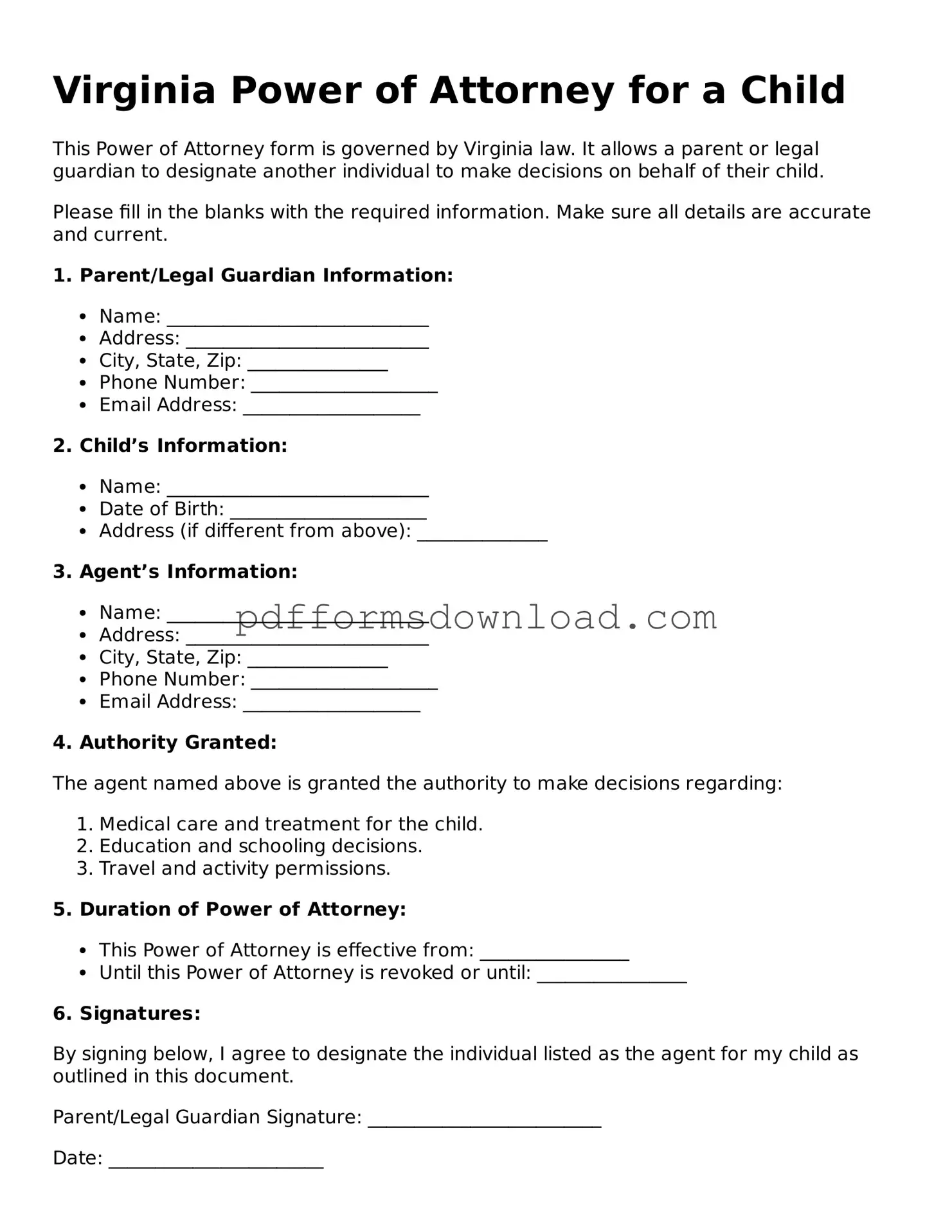Printable Virginia Power of Attorney for a Child Form
The Virginia Power of Attorney for a Child form allows a parent or legal guardian to grant temporary authority to another adult for the care and custody of their child. This legal document can be essential for situations like travel, emergencies, or when a parent is unavailable. If you need to fill out this form, click the button below.
Make This Document Now

Printable Virginia Power of Attorney for a Child Form
Make This Document Now

Make This Document Now
or
Free PDF File
Your form is almost ready
Complete your Power of Attorney for a Child online — edit, save, and download easily.